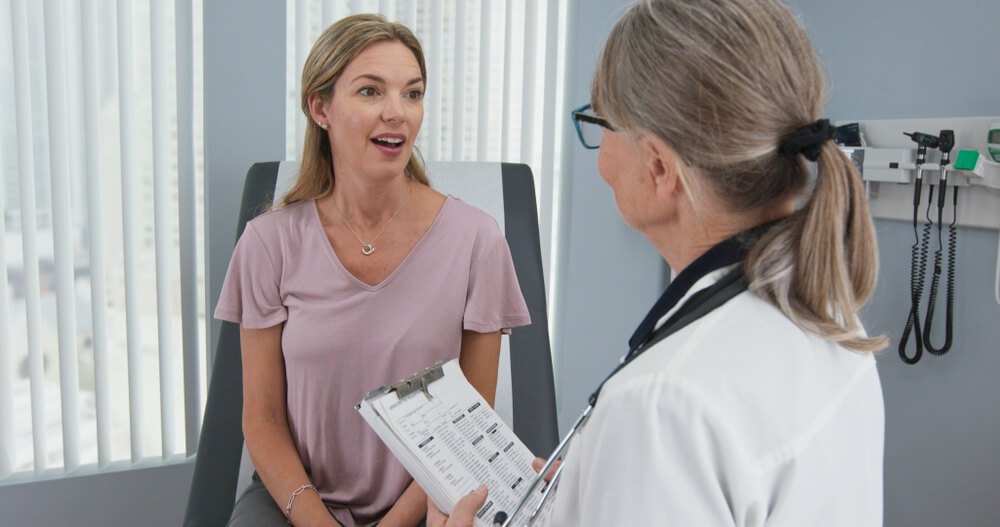Taking charge of your reproductive health is a crucial aspect of overall well-being, and a key player in this arena is none other than a gynecologist. Regular visits to a gynecologist are essential for maintaining optimal health and addressing any potential issues before they become major concerns. In this blog post, Dr. Arunachalam Jothivijayarani and her expert team of gynecologists in Bradenton, Florida, will explore 10 compelling reasons why scheduling routine visits to a gynecologist is a proactive step toward a healthier, more informed life.
Comprehensive Women’s Health Check-Up

A gynecologist specializes in women’s health, focusing on the female reproductive system. Regular check-ups ensure a comprehensive assessment of your reproductive health, covering aspects like pelvic exams, breast exams, and Pap smears to detect and prevent potential issues.
Moreover, a gynecologist goes beyond the physical examinations to foster an environment of open communication and trust. These healthcare professionals are well-versed in addressing the emotional and psychological aspects of women’s health. Regular gynecologist visits provide an opportunity to discuss any concerns, anxieties, or questions you may have regarding your reproductive health. Whether it’s coping with the emotional impact of a diagnosis or seeking advice on maintaining mental well-being during hormonal changes, your gynecologist is there to offer support and guidance. This holistic approach ensures that your reproductive health is not just physically monitored but also nurtured on a mental and emotional level, contributing to a comprehensive and patient-centric healthcare experience.
Early Detection of Reproductive Cancers
Early detection of reproductive cancers is a cornerstone of women’s health, and gynecologists are frontline advocates in this critical aspect. Cervical, ovarian, and breast cancers are among the most prevalent reproductive cancers affecting women. Routine screenings conducted by gynecologists, including Pap smears and mammograms, are instrumental in identifying any abnormalities at an early stage. The significance of these screenings lies in their potential to catch cancerous or precancerous conditions before symptoms manifest, enhancing the prospects for successful treatment and recovery.
Cervical cancer screenings, often involving Pap smears, allow gynecologists to detect abnormal cells on the cervix that could develop into cancer. Similarly, mammograms, recommended for women over 40, aid in identifying breast abnormalities, including potential tumors. For ovarian cancer, which can be challenging to detect in its early stages due to subtle symptoms, gynecologists may recommend specific tests or monitoring methods based on individual risk factors.
The importance of routine screenings extends beyond mere detection; it empowers women to actively participate in their health and take preventive measures. Timely interventions, guided by a gynecologist’s expertise, may involve further diagnostic tests, surgical procedures, or targeted treatments. By identifying and addressing reproductive cancers at their nascent stages, gynecologists significantly enhance the chances of successful treatment outcomes and long-term recovery.
Guidance on Family Planning
A gynecologist can provide valuable guidance on family planning options, including contraceptives and fertility treatments. Whether you’re planning to start a family or delay pregnancy, consulting with a gynecologist can help you make informed decisions aligned with your personal goals.
Management of Menstrual Disorders
Menstrual irregularities can be indicators of underlying health issues. A gynecologist can help diagnose and manage conditions such as polycystic ovary syndrome (PCOS) or endometriosis, ensuring you receive appropriate treatment to improve your quality of life.
Preventive Measures for Sexually Transmitted Infections (STIs)
In the realm of sexual health, regular visits to a gynecologist play a pivotal role in preventing and managing sexually transmitted infections (STIs). These infections, which can have both immediate and long-term consequences, require timely detection and intervention to safeguard overall well-being. Gynecologists are well-equipped to provide a confidential and supportive environment for discussions about sexual health, ensuring that patients can openly address concerns and seek necessary testing and guidance.
One of the key advantages of routine gynecologist visits is the opportunity to engage in conversations about sexual practices and behaviors. Gynecologists are trained to ask pertinent questions sensitively, helping patients share information about their sexual history, current relationships, and any potential risk factors. This dialogue is essential in identifying potential exposure to STIs and tailoring the testing approach accordingly.
Addressing Menopausal Symptoms

Navigating through menopause is a significant milestone in a woman’s life, marked by a cascade of physical and hormonal changes that can have a profound impact on overall well-being. In this transformative phase, seeking guidance and support from a gynecologist becomes instrumental in managing menopausal symptoms and ensuring a smoother transition into this new chapter of life.
Menopause, typically occurring in the late 40s or early 50s, is characterized by the cessation of menstrual periods and a decline in reproductive hormones like estrogen and progesterone. The resulting hormonal fluctuations can lead to a range of symptoms, including hot flashes, night sweats, mood swings, vaginal dryness, and changes in bone density.
A gynecologist specializing in women’s health is well-versed in the intricacies of menopause and can provide personalized guidance tailored to each individual’s unique needs. During routine visits, discussions about menopausal symptoms are not only welcomed but encouraged, creating a safe space for women to share their experiences and concerns openly.
Screening for Reproductive Organ Disorders
Routine visits to a gynecologist allow for the screening of reproductive organ disorders, such as uterine fibroids or ovarian cysts. Early detection can lead to more effective and less invasive treatment options.
Promoting Sexual Health and Wellness
A gynecologist is a trusted resource for discussing and addressing sexual health concerns. Whether it’s pain during intercourse, low libido, or other issues, open communication with a gynecologist can help find solutions and improve overall sexual well-being.
Managing Hormonal Imbalances
Hormonal imbalances can exert a profound influence on women’s health, affecting not only their physical well-being but also their emotional and mental states. From mood swings to irregular menstrual cycles, the repercussions of hormonal fluctuations can be challenging to navigate. In this scenario, a gynecologist emerges as a valuable ally, equipped to assess and provide tailored recommendations for managing hormonal imbalances through a combination of lifestyle changes and, when necessary, medical interventions.
One of the primary areas where hormonal imbalances manifest is in menstrual irregularities. Whether it’s a heavy flow, irregular periods, or other menstrual abnormalities, a gynecologist can conduct a comprehensive evaluation to identify the root cause. This may involve hormonal testing, ultrasound examinations, and a thorough medical history review to pinpoint any underlying conditions such as polycystic ovary syndrome (PCOS) or thyroid disorders.
Addressing hormonal imbalances often begins with lifestyle modifications. Gynecologists can offer guidance on nutrition, exercise, and stress management techniques that may help regulate hormone levels naturally. For instance, maintaining a balanced diet rich in essential nutrients, engaging in regular physical activity, and adopting stress-reducing practices can contribute to hormonal equilibrium and overall well-being.
Educational Opportunities
Gynecologists are not just healthcare providers; they are educators. Regular visits offer the chance to ask questions, receive personalized health advice, and stay informed about the latest advancements in women’s health.
Finishing Thoughts
In conclusion, the importance of seeing a gynecologist regularly cannot be overstated. From preventive screenings to personalized care, gynecologists play a crucial role in safeguarding and enhancing women’s reproductive health. Remember, taking proactive steps toward your well-being today can lead to a healthier and more fulfilling tomorrow. So, make that appointment and prioritize your reproductive health – because you deserve it.
That being said, don’t hesitate to schedule an appointment with us if you have any questions or concerns.


